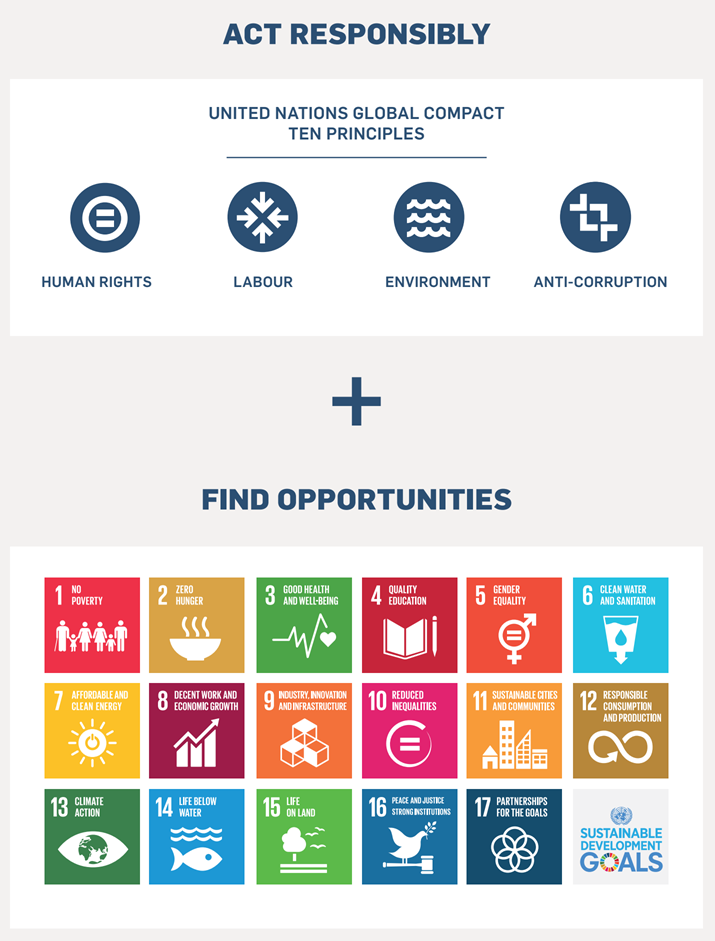UN Global Compact
- Home
- /
- UN Global Compact
United Nations Global Compact (UNGC)
“I propose that you, the business leaders … and we, the United Nations, initiate a global compact of shared values and principles, which will give a human face to the global market.”
H.E. Kofi Annan Former UN Secretary General
In 1999, UN Secretary-General Kofi Annan challenged business leaders at the World Economic Forum to join the UN Global Compact, an initiative uniting companies with UN agencies, labor organizations, and civil society to uphold universal environmental and social principles. Today, hundreds of companies worldwide, along with international labor and civil society organizations, actively contribute to the UN Global Compact, advancing ten universal principles in human rights, labor, environment, and anti-corruption.
Through the power of collective action, the UN Global Compact seeks to promote responsible corporate citizenship so that business can be part of the solution to the challenges of globalization. In this way, the private sector – in partnership with other social actors – can help realize the Secretary-General’s vision: a more sustainable and inclusive global economy.
The United Nations Global Compact is a purely voluntary initiative with two objectives:
- Mainstream the UN Global Compact 10 principles in business activities around the world
- Catalyze actions in support of UN goals
There are numerous benefits to participating in the UN Global Compact. These include:
- Demonstrating leadership by advancing responsible corporate citizenship.
- Producing practical solutions to contemporary problems related to globalization, sustainable development and corporate responsibility in a multi-stakeholder context.
- Managing risks by taking a proactive stance on critical issues.
- Leveraging the UN’s global reach and convening power with governments, business, civil society and other stakeholders.
- Sharing good practices and learnings.
- Accessing the UN’s broad knowledge in development issues.
- Improving corporate/brand management, employee morale and productivity, and operational efficiencies.
For more information, visit the website of the UN Global Compact.
Business can be part of the solution to the challenges of globalization

VISION
A more sustainable and inlclusive global economy
OBJECTIVES
Make the ten principles part of business strategy, operations and culture everywhere (Internalization)
Take action in support of UN goals and issues (Contribute to society/ Development)
UN Goals and Issues
- Peace and Security
- Water Security and Sanitation
- Human Rights
- Children’s Rights
- Gender Equality Development
- Health
- Food Security
- Ecosystem and Biodiversity
- Climate Change Mitigation and Adaptation
- Employment and Decent Working Condition
- Anti-Corruption
For a More Sustainable and Inclusive Global Economy


